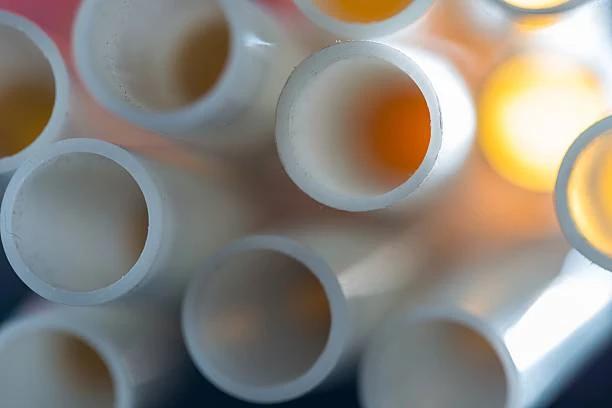As summer approaches, gardens flourish with vibrant colors and lush greenery, demanding regular and efficient watering. Among the myriad of irrigation options available, CPVC (Chlorinated Polyvinyl Chloride) pipes stand out for their durability, flexibility, and cost-effectiveness. This article delves into why CPVC pipes are the optimal choice for watering your garden this season, based on extensive testing and analysis.

Understanding CPVC Pipes Material
CPVC is a thermoplastic material that combines the best attributes of PVC (Polyvinyl Chloride) with enhanced chemical and temperature resistance. It can withstand higher temperatures than traditional PVC, making it ideal for outdoor applications where exposure to sunlight and varying weather conditions is inevitable. CPVC pipe also resist corrosion and chemical degradation, ensuring long-lasting performance without the need for frequent replacements.
Performance in Various Weather Conditions
Summer brings about extreme temperatures and unpredictable weather patterns, both of which can affect the integrity of irrigation systems. CPVC pipe have been tested to perform reliably under such conditions. Their heat resistance allows them to handle high temperatures without softening or deforming, while their UV stability ensures they don’t degrade when exposed to direct sunlight. This makes CPVC pipes an excellent choice for garden irrigation systems, as they maintain consistent water flow regardless of the weather.
CPVC pipes Installation Ease and Flexibility
Installing CPVC pipe is a straightforward process that requires minimal tools and expertise. The pipes can be easily cut to size and connected using solvent cement, which creates a strong, leak-proof bond. CPVC pipes also come in various diameters, allowing for customization based on the specific watering needs of your garden.
Cost-Effectiveness Over Time
Initial investments in CPVC pipe may be slightly higher compared to some other materials. However, their superior durability and minimal maintenance requirements make them a more cost-effective solution in the long run. With CPVC pipe, gardeners can avoid the frequent repairs and replacements often necessary with less resilient materials, saving both time and money.
CPVC pipes Environmental Benefits
In addition to their practical benefits, CPVC pipe offer environmental advantages. They are produced from chlorine, a widely available and recycled material, reducing the environmental footprint of manufacturing. Furthermore, CPVC pipes are fully recyclable, ensuring that they can be repurposed at the end of their lifespan, minimizing waste.
Maintenance and Upkeep
Maintaining CPVC pipe is relatively straightforward. Regular checks for cracks or leaks and occasional cleaning of the system are generally sufficient to keep it in optimal condition. CPVC’s resistance to algae growth and mineral buildup further simplifies maintenance, ensuring that water flows smoothly and efficiently throughout the garden.
FAQ
Q: Can CPVC pipes be used in underground irrigation systems?
A: Absolutely, CPVC pipes are highly suitable for underground irrigation systems. Their resistance to corrosion, chemicals, and varying weather conditions makes them a robust choice for subsurface applications. The pipes can be easily buried without fear of degradation, and their flexibility allows for adaptation to different terrains and garden layouts. However, it’s important to adhere to local building codes and guidelines when installing underground irrigation systems to ensure safety and compliance.
Q: How do I connect CPVC pipes?
A: Connecting CPVC pipe is a straightforward process that involves using solvent cement. First, ensure that the surfaces to be joined are clean and dry. Apply primer to the ends of the pipes and fittings, followed by a generous coat of solvent cement. Quickly fit the pipe into the fitting, twisting slightly to ensure an even distribution of cement. Hold the joint together for a few seconds until it sets, creating a strong, leak-proof bond.
Q: Are CPVC pipes resistant to freezing temperatures?
A: While CPVC pipes are highly durable and can withstand high temperatures, they are not immune to damage from freezing. Exposure to extremely low temperatures can cause the pipes to crack or burst. To prevent this, it’s essential to insulate exposed pipes or drain the irrigation system during periods of severe cold. Consider using foam pipe insulation or burying pipes at a depth where the ground temperature remains above freezing.
Q: Can CPVC pipes be used with potable water?
A: CPVC pipes are primarily designed for non-potable water applications, such as irrigation systems. While some types of CPVC pipe may be approved for use with potable water, it’s crucial to check with the manufacturer and local regulations to ensure compliance. For gardens, CPVC pipes are perfectly safe for transporting water used for irrigation purposes.
Q: How often should I inspect my CPVC irrigation system?
A: Regular inspections are key to maintaining the efficiency and longevity of your CPVC irrigation system. Aim to check the pipes and fittings at least once a month during the irrigation season. Look for signs of wear, cracks, leaks, or algae buildup. Promptly address any issues to prevent more significant problems down the line. Additionally, periodically flushing the system can help remove any debris or minerals that may have accumulated.


















